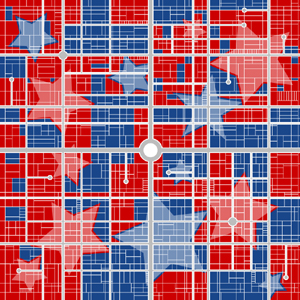Now with a GOP majority, top state court votes to rehear 2 recently decided voting-rights cases

Image from Shutterstock.
The North Carolina Supreme Court on Friday agreed to rehear two cases that blocked voter ID requirements and struck down gerrymandered partisan maps of federal congressional and state Senate districts.
Both decisions were issued less than two months ago, when the state supreme court had four Democratic judges and three Republican judges, the New York Times reports.
Following elections, the state supreme court has five Republican and two Democratic judges.
The maps struck down in December 2022 had been redrawn to comply with a February 2022 decision, Harper v. Hall, which found that 2021 voting maps for federal congressional and state legislative seats were unconstitutional partisan gerrymanders under the state constitution. The February 2022 decision is known as Harper I, and the December 2022 decision is known as Harper II, according to the petition for rehearing submitted to the North Carolina Supreme Court.
State lawmakers are asking the North Carolina Supreme Court to withdraw Harper II and overrule Harper I. They argue that the state supreme court should rule that partisan gerrymandering claims present political questions that can’t be decided by courts.
The two Democratic justices in North Carolina dissented from the decision to rehear the voter ID and gerrymandering cases.
“It has long been the practice of this court to respect precedent and the principle that once the court has ruled, that ruling will not be disturbed merely because of a change in the court’s composition,” wrote Justice Anita Earls, joined by Justice Michael R. Morgan.
“It took this court just one month to send a smoke signal to the public that our decisions are fleeting, and our precedent is only as enduring as the terms of the justices who sit on the bench,” the dissent said.
The Harper I ruling on congressional districts is now before the U.S. Supreme Court in Moore v. Harper, according to the petition for rehearing.
Lawmakers urge the Supreme Court to rule that state legislatures have the final say in drawing federal voting maps, and state supreme courts can’t get involved. Their argument is known as the “independent state legislature” theory.
A ruling for lawmakers by the North Carolina Supreme Court could moot the case before the Supreme Court, according to the Election Law Blog in a post by Rick Hasen, a professor at the University of California at Los Angeles School of Law.



